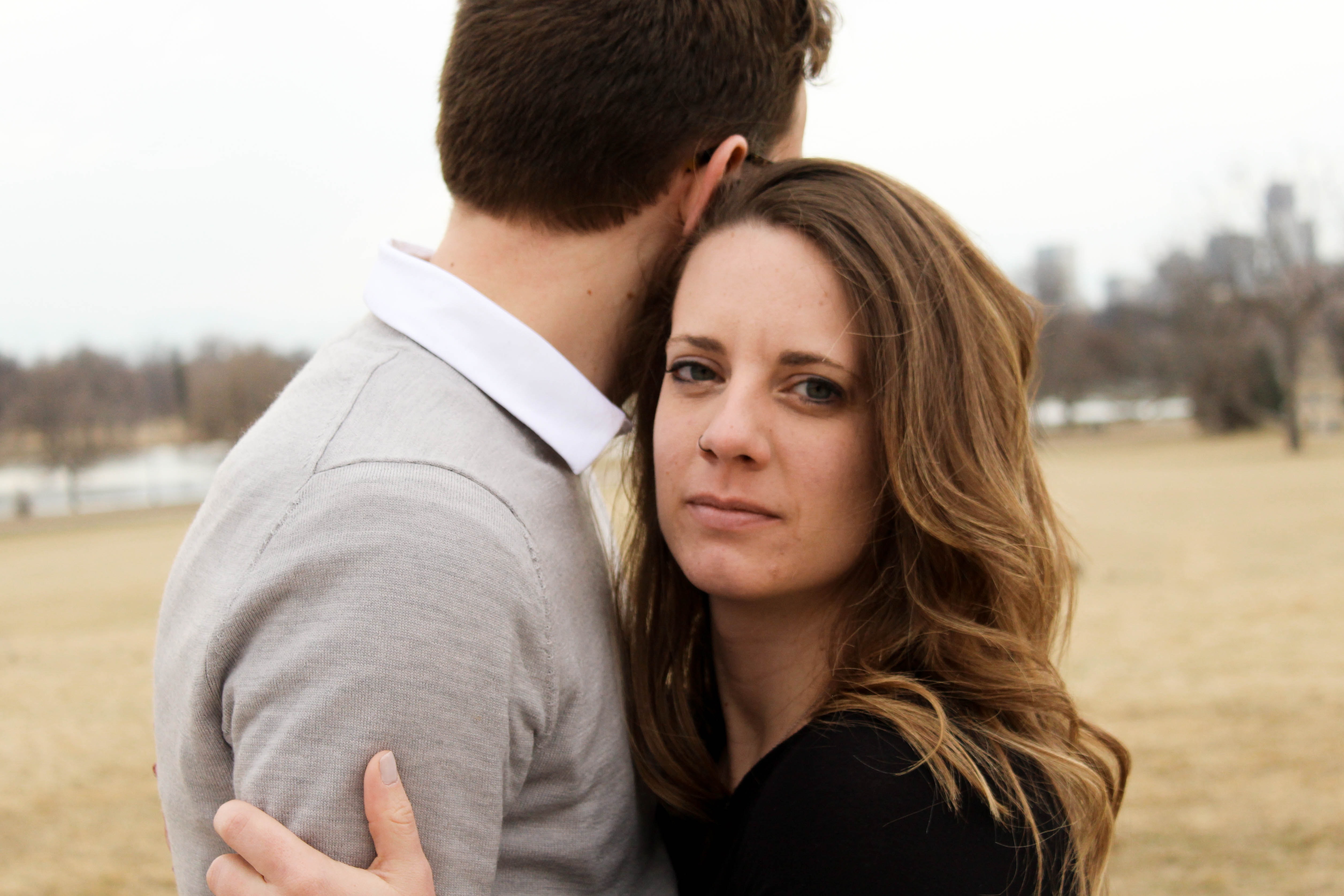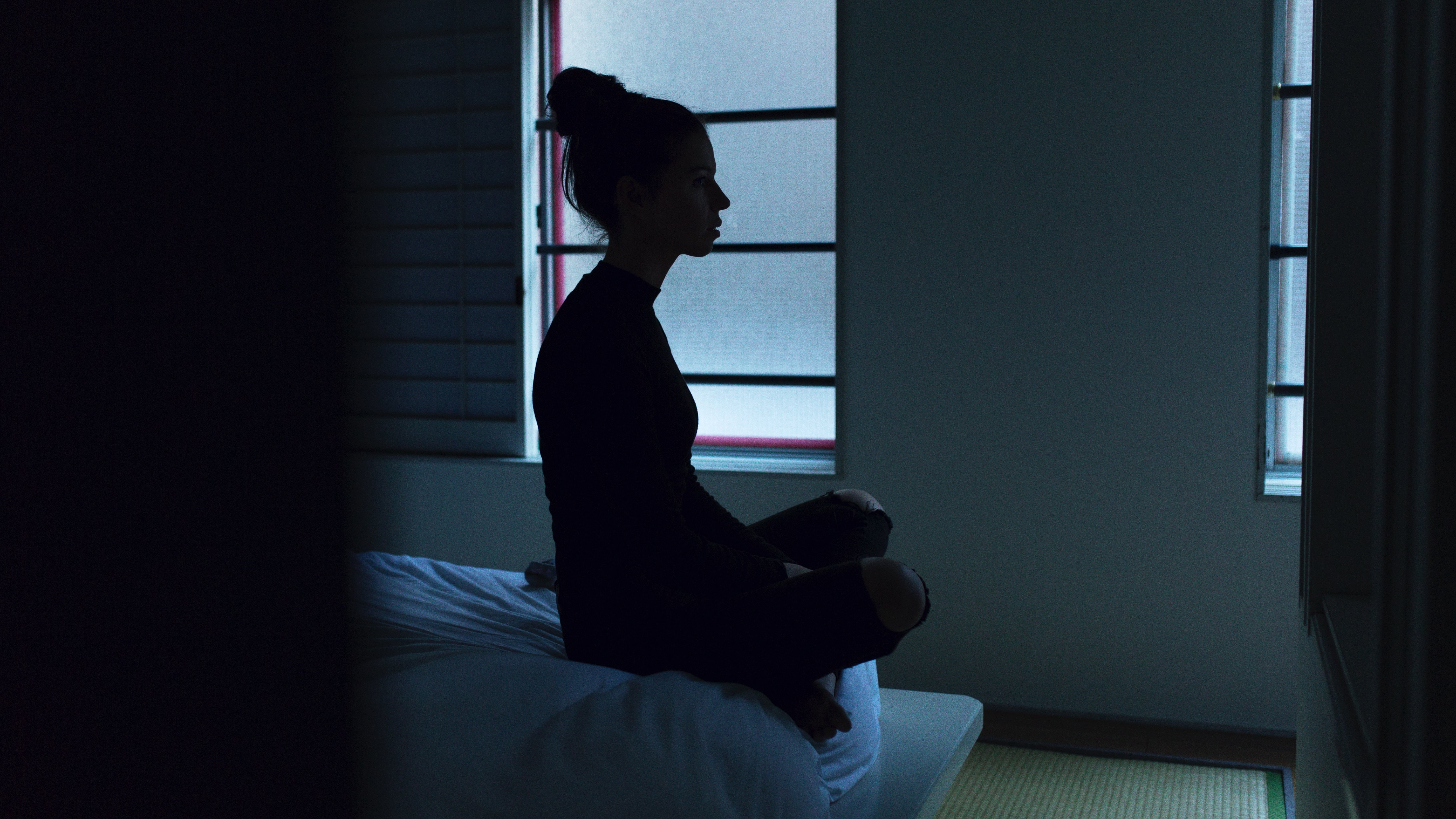Depression is a mental health disorder that affects mood, thoughts and body. It is associated with a feeling of great sadness to despair. People experience a loss of pleasure even for activities that once they enjoyed. Decision-making abilities may be impaired, or affected by sleep and eating disorders. Self-esteem is diminished with a tendency to undervalue one's own worth.
As is often the case with mental illness, depression has physical consequences that are sometimes the source of depression, or at least reinforce it. It should be noted that depression and its physical consequences often reinforce each other. Hence the installation of a vicious circle that it is necessary to break. Depression can be physically experienced in the body by a backache, stomach ache, headache.
Depression usually occurs in the form of depressive periods that can last weeks, months or even years. Depending on the intensity of the symptoms, the depression will be described as mild, moderate or major.
When depression sets in over time, we talk about chronic depression. Bipolar disorders are specific disorders that alternate phases of depression and over excitation phases.
Depression can appear with other disorders, such as:
- Anxiety
- Substance abuse alcoholism, abuse of substances such as cannabis, ecstasy, cocaine, dependence on certain drugs such as sleeping pills or tranquilizers
- Cardiovascular diseases and diabetes
Possible complications related to depression:
- The recurrence of depression. This is a common problem: 50% of people who have experienced depression will experience it more than once. Regular therapy considerably reduces this risk of recurrence.
- The transition to chronic depression
- The suicidal risk
Depression is the number one cause of suicide: about 70% of those who died by suicide suffered from depression. Depressed men over 70 are the people most at risk of suicide. The highest suicide rate in the UK was for men aged 45-49, and men account for three quarters of recorded suicides. Suicidal ideations are one of the signs of depression. Even though most people with suicidal ideation do not make an attempt, it is a warning sign. Depressed people think of suicide as a way to stop suffering.
Can depression affect anyone?
Depression is one of the most common mental health issues. According to the World Health Organisation (WHO), by 2020, depression will become the second leading cause of disability worldwide, after cardiovascular disorders.
Depression can occur at any age, including childhood, but it appears for the first time most often in late adolescence or early adulthood.
It is unclear what causes depression, but it is likely to be a mix of genetics, biology, the environment and lifestyle. Life events, loss of a loved one, divorce, illness, loss of a job, or trauma can trigger depression in those who are prone to the disease. In the weeks following the loss of a loved one, signs of depression are common, and this is part of the grieving process. However, if these signs of depression persist for more than a couple of months, or if they are very marked, consult a specialist. If you think someone you know or you have depression, I recommend that you seek help from a health professional.
It should be noted that events that are socially considered positive or innocuous can also lead to depression, such as seasonal depression due to lack of sunlight or postpartum depression. In 60% to 80% of women, a state of sadness, nervousness and anxiety manifests itself in the days after childbirth. We talk about baby blues that lasts between one day and 15 days. Usually, this negative mood disappears by itself. However, in 1 out of 8 women, a real depression settles immediately or appears in the year following birth.
Unhealthy lifestyle (smoking, alcoholism, little physical activity, excess of television or video games, etc.) and the living conditions (precarious economic conditions, stress, social isolation) are likely to deeply harm the psychological state. For example, the build-up of stress at work can lead to burnout and, eventually, depression.
Depression or sadness?
The term depression is commonly used in everyday language to describe a state of sadness associated with the difficulties of life. Depression being characterised among other factors by a state of deep sadness, it is common to confuse the two psychological states.
Sadness is a normal emotion that everyone will experience at some point in their lives following a clearly identifiable event such as losing a job, ending a relationship, or bereavement. Over time and events, each of us experiences a range of feelings, from the saddest to the most optimistic. Sadness, discouragement and despair are human experiences that should not worry us too much, if they are not lasting. Temporary sadness, even unexplained, does not prevent you from enjoying the activities that give you pleasure, such as sharing a meal with friends, playing with your children or practicing your favourite sport.
If this sadness persists and invades all spheres of your life, then it can be the beginning of depression.
A person with depression may have every reason to be happy, yet they have lost the ability to feel joy or pleasure. In sadness, you may feel regret or remorse for something you said or did, but you will not feel any long term nor profound sense of worthlessness or guilt as you would with depression. Finally, non-depressive sadness is not the cause of self-aggression and suicidal tendencies. Those who suffer from severe depression may have thoughts of self-mutilation, death or suicide or have a suicide plan.
Am I depressed?
The DSM-5 (The Diagnostic and Statistical Manual of Mental Disorders used by clinicians and psychiatrists) outlines specific criteria to diagnose clinical depression. The individual must be experiencing five or more symptoms during the same two-week period and at least one of the symptoms should be either depressed mood or loss of interest or pleasure.
1. Depressed mood most of the day, nearly every day.
2. Markedly diminished interest or pleasure in all, or almost all, activities most of the day, nearly every day.
3. Significant weight loss when not dieting or weight gain, or decrease or increase in appetite nearly every day.
4. A slowing down of thought and a reduction of physical movement (observable by others, not merely subjective feelings of restlessness or being slowed down).
5. Fatigue or loss of energy nearly every day.
6. Feelings of worthlessness or excessive or inappropriate guilt nearly every day.
7. Diminished ability to think or concentrate, or indecisiveness, nearly every day.
8. Recurrent thoughts of death, recurrent suicidal ideation without a specific plan, or a suicide attempt or a specific plan for committing suicide.
To receive a diagnosis of depression, these symptoms must cause the individual clinically significant distress or impairment in social, occupational, or other important areas of functioning. The symptoms must also not be a result of substance abuse or another medical condition.
If you suffer from many of these symptoms, psychotherapy can help you get out of depression.
It is especially important to consult a specialist if you have suicidal thoughts. If a loved one tells you about suicidal thoughts, advise him or her to call or call yourself a health professional to ask for help.
When to ask for help with depression
Does depression prevent you from living, working, loving?
When the negative consequences of depression invade your life and become as difficult to bear as the symptoms of depression, it is time to ask for help.
If you feel isolated and that the feeling of being judged pushes you to retreat even more, it is advisable to seek help from a psychotherapist. The person who suffers from depression feels pretty often judged. While it would not occur to anyone to question the struggle of someone suffering from a somatic condition, it is often considered that depression is caused by a lack of courage and will. The person who suffers from depression will often hear: “Get on with it, pull yourself together, make an effort”. Will alone is not enough to cure depression. Sometimes, the family feel so worried and want to help by pushing the person to resume activities. These attempts to motivate him or her are perceived by the depressed person as an attack and a reproach, which reinforces their feelings of guilt and helplessness.
If you think that financial or family problems arise from your depression, it is time to ask for help.
Depression has consequences on all activities of everyday life: intellectual performance decreases, conflicts increase, professional results are affected. Depressed people may lose their jobs during their illness.
If the suffering is such that you use uncontrolled substances or legal or illicit means to calm you down (alcohol, tobacco, cannabis, drugs, food...), I strongly recommend that you contact a psychotherapist.
How does therapy work?
Depression can be treated. Therapy can achieve a significant improvement of the symptoms and a return to well being. The duration of psychotherapy is variable and depends on the severity of the depression, the number of relapses, and the situation of the person.
In the case of mild depression, psychotherapy may be sufficient but in cases of chronic depression, combined treatment of therapy with antidepressants might be more common. Studies have shown that antidepressants are more effective if you follow psychotherapy at the same time. It is sometimes necessary to try several antidepressants in order to find the one that suits you.
One of the aims of therapy is to help the client to rebuild his social references which he has gradually cut. With the help of the therapist, the client will reintroduce a daily routine and organise activities that expose him to the others. For example, the therapist will discuss with the client groups or individual activities in accordance with the client's personality and situation. These activities should help regain pleasure and a rhythm of life favourable to the resuming of relationships with others.
The personal situation of the client is essential for the success of the treatment. A client supported by those around him will have a better chance of getting out of the depression quickly. Do not hesitate to ask the help of your entourage. If your relatives feel lost and unable to help, your therapist can, with your agreement, advise them on the best way to support you.
Whatever the sources of your depression, it is important to take the time to find the therapist who will listen to you and adapt his methods to your situation. In a benevolent exchange with the psychotherapist, the client learns to express his suffering without feeling judged or diminished. With the support and understanding that the therapist brings, the patient will find his own way out of the depression. This is a progressive path that will require adjustments and on which the therapist will encourage you with patience and warmth.
If you feel depressed and need urgent support you can call the Samaritans on 116 123 or contact your GP, or anyone you trust. You can also start your search for the right therapist here on Welldoing. Beginning to talk about your depression without being incapacitated by shame is what matters. It is the crucial first step.







